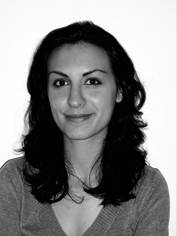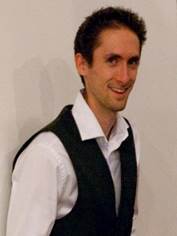Keynote Speaker
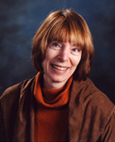 Sara Kiesler is Hillman Professor of Computer Science and Human Computer Interaction at Carnegie Mellon University. Kiesler applies behavioral and social science methods and thinking to technology design, especially to understanding how technologies challenge existing social and work behavior of individuals, groups, and organizations. She conducted among the first scientific studies of computer-mediated communication and early forms of the Internet.
Sara Kiesler is Hillman Professor of Computer Science and Human Computer Interaction at Carnegie Mellon University. Kiesler applies behavioral and social science methods and thinking to technology design, especially to understanding how technologies challenge existing social and work behavior of individuals, groups, and organizations. She conducted among the first scientific studies of computer-mediated communication and early forms of the Internet.
With Lee Sproull, she authored the seminal book, Connections: New Ways of Working in the Networked Organization (MIT Press). In the early to mid-1990s, as the general public began to use the Internet, she was a founding researcher of the HomeNet project, to observe how households used the Internet. She has collaborated extensively within Carnegie Mellon and with other university colleagues on social design of the Internet.
Kiesler has studied technology in work settings and was among those who pointed out opportunities and problems associated with multidisciplinary and complex forms of collaboration, geographically dispersed science and project work (see Distributed Work with Pamela Hinds, MIT Press), information sharing, and the design of human-robot interaction.
Discussants
 Robert Hariman, Professor of Communication Studies, joined the Northwestern faculty in 2004. His scholarship focuses on the role of style in human affairs, particularly with regard to political judgment and the discursive constitution of modern society. Hariman teaches courses in rhetorical theory and the critical study of public culture. In addition to his book publications, Hariman has written numerous book chapters and journal articles in several disciplines.
Robert Hariman, Professor of Communication Studies, joined the Northwestern faculty in 2004. His scholarship focuses on the role of style in human affairs, particularly with regard to political judgment and the discursive constitution of modern society. Hariman teaches courses in rhetorical theory and the critical study of public culture. In addition to his book publications, Hariman has written numerous book chapters and journal articles in several disciplines.
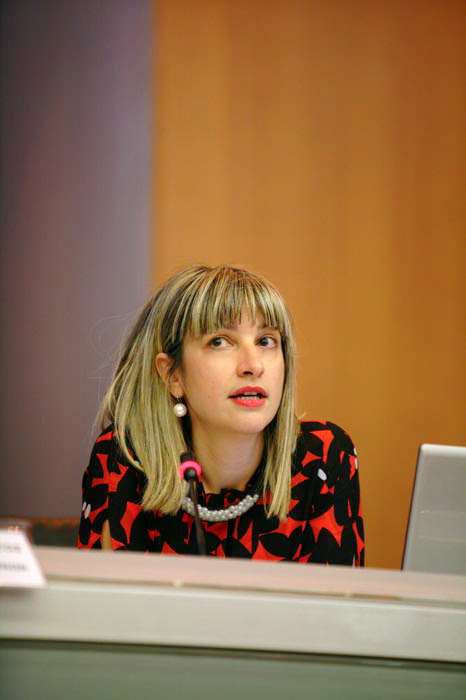 Zizi Papacharissi (PhD University of Texas at Austin 2000), is Professor and Head of the Communication Department at the University of Illinois-Chicago. Her work focuses on the social and political consequences of online media. Her book, A Private Sphere: Democracy in a Digital Age (Polity Press, 2010), discusses how online media redefine our understanding of public and private in late-modern democracies. She also recently edited a volume on online social networks, titled A Networked Self: Identity, Community, and Culture on Social Network Sites (Routledge, 2010). She is author of three books, and over 40 journal articles, book chapters or reviews, and Editor of the Journal of Broadcasting and Electronic Media. She serves on the Editorial Board of ten journals, including the Journal of Communication, Human Communication Research, and New Media and Society.
Zizi Papacharissi (PhD University of Texas at Austin 2000), is Professor and Head of the Communication Department at the University of Illinois-Chicago. Her work focuses on the social and political consequences of online media. Her book, A Private Sphere: Democracy in a Digital Age (Polity Press, 2010), discusses how online media redefine our understanding of public and private in late-modern democracies. She also recently edited a volume on online social networks, titled A Networked Self: Identity, Community, and Culture on Social Network Sites (Routledge, 2010). She is author of three books, and over 40 journal articles, book chapters or reviews, and Editor of the Journal of Broadcasting and Electronic Media. She serves on the Editorial Board of ten journals, including the Journal of Communication, Human Communication Research, and New Media and Society.
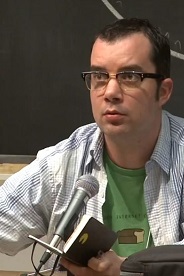 Christian Sandvig is an Associate Professor of Communication Studies and Information at the University of Michigan, as well as a faculty associate of the Berkman Center for Internet & Society at Harvard University. He is a researcher specializing in Internet infrastructure and public policy. He was previously named a “next-generation leader” in science and technology policy by the American Association for the Advancement of Science, and received the Faculty Early Career Development Award from the US National Science Foundation (NSF CAREER). He has been a faculty member at the University of Illinois at Urbana-Champaign and Oxford University, and holds the Ph.D. in Communication from Stanford University.
Christian Sandvig is an Associate Professor of Communication Studies and Information at the University of Michigan, as well as a faculty associate of the Berkman Center for Internet & Society at Harvard University. He is a researcher specializing in Internet infrastructure and public policy. He was previously named a “next-generation leader” in science and technology policy by the American Association for the Advancement of Science, and received the Faculty Early Career Development Award from the US National Science Foundation (NSF CAREER). He has been a faculty member at the University of Illinois at Urbana-Champaign and Oxford University, and holds the Ph.D. in Communication from Stanford University.
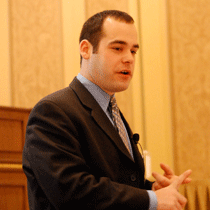 Jeffrey William Treem is an Assistant Professor of Communication Studies at The University of Texas at Austin where he is part of the Organizational Communication & Technology group. His research interests include the relationship between technology use and social perceptions of expertise, primarily in organizational contexts. Specifically, his work explores how the material affordances of communication technologies affect attributions of knowledge. He is experienced in ethnographic analysis and social network methods. He has a Ph.D. and B.S. from Northwestern University and a M.A. from the University of Southern California.
Jeffrey William Treem is an Assistant Professor of Communication Studies at The University of Texas at Austin where he is part of the Organizational Communication & Technology group. His research interests include the relationship between technology use and social perceptions of expertise, primarily in organizational contexts. Specifically, his work explores how the material affordances of communication technologies affect attributions of knowledge. He is experienced in ethnographic analysis and social network methods. He has a Ph.D. and B.S. from Northwestern University and a M.A. from the University of Southern California.
Presenters
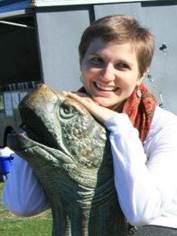 Christine Bachman-Sanders received her BA in Sociology and Gender Studies from Middlebury College, and is currently working toward a Master of Arts degree in Media, Culture and Communication at New York University. Her work examines the boundaries between queer and normative structures, and the transgressive possibilities that exist within this space of theoretical exploration. She is currently working on a project that analyzes the use of mainstream popular culture by gay men from 1969 – 2013 in order to understand how meanings encoded in popular culture references have changed as gay men are increasingly granted institutional and societal acceptance.
Christine Bachman-Sanders received her BA in Sociology and Gender Studies from Middlebury College, and is currently working toward a Master of Arts degree in Media, Culture and Communication at New York University. Her work examines the boundaries between queer and normative structures, and the transgressive possibilities that exist within this space of theoretical exploration. She is currently working on a project that analyzes the use of mainstream popular culture by gay men from 1969 – 2013 in order to understand how meanings encoded in popular culture references have changed as gay men are increasingly granted institutional and societal acceptance.
Soo Young Bae is interested in the far-reaching social and political impact of new communication technologies, with a particular focus on the dynamics of user interaction and information flow in social media platforms. Her program of research explores how the flow of news and information becomes increasingly ingrained in existing social relationships, and how it shapes our attitudes, behaviors, and relation to one another. Her current research takes a more holistic approach to examining human communicative behavior in social media by utilizing big data analytics.
 Andrew W. Cole is a PhD student in the Department of Communication at the University of Wisconsin-Milwaukee. His focus is on communication technology, as well as a focus on alternative pedagogies. He has an MA in Communication from the University of Wisconsin-Milwaukee.
Andrew W. Cole is a PhD student in the Department of Communication at the University of Wisconsin-Milwaukee. His focus is on communication technology, as well as a focus on alternative pedagogies. He has an MA in Communication from the University of Wisconsin-Milwaukee.
text
text
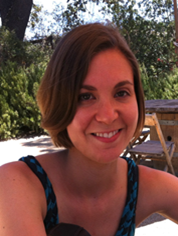 Nora Draper is a PhD Candidate at the University of Pennsylvania’s Annenberg School for Communcation. Her research investigates political, economic, and historical factors that shape the internet industry’s approaches to norms of privacy, surveillance, identity construction, and reputation. Her work has appeared in the Journal of Children & Media, Critical Studies & Media Communication, the International Journal of Communication, and Surveillance & Society.
Nora Draper is a PhD Candidate at the University of Pennsylvania’s Annenberg School for Communcation. Her research investigates political, economic, and historical factors that shape the internet industry’s approaches to norms of privacy, surveillance, identity construction, and reputation. Her work has appeared in the Journal of Children & Media, Critical Studies & Media Communication, the International Journal of Communication, and Surveillance & Society.
gdgdfg
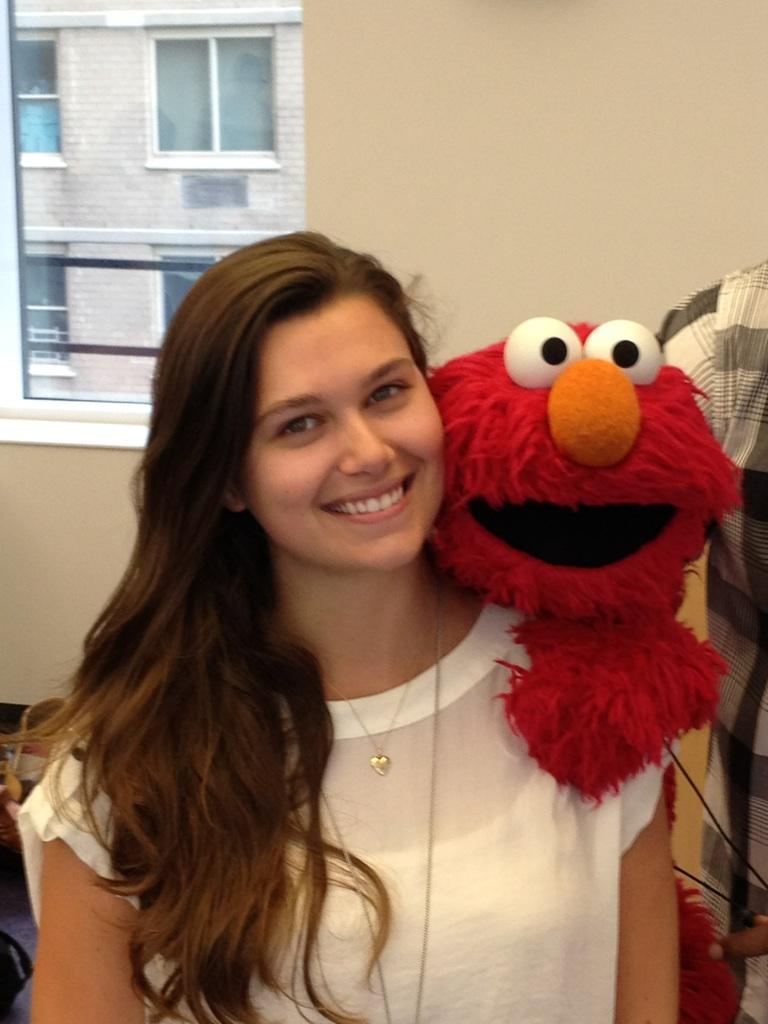 Charlotte Duncan is a Master’s student in the Technology, Innovation, and Education program at the Harvard Graduate School of Education. In addition to pursuing her Master’s, Charlotte is currently the Product and Partnerships Manager for the Educational Technology startup Socrative. In May of 2013, Charlotte graduated with a B.S. in Cognitive Studies and a minor in Special Education from Vanderbilt University’s Peabody College of Education. Throughout her senior year at Vanderbilt, Charlotte worked in Dr. Georgene Troseth’s Early Development Lab, and since then she has continued to collaborate with Dr. Troseth’s team to investigate children’s use of and learning from touch screens. Inspired by her experience in the Domestic Research Department of Sesame Workshop, Charlotte’s passion for fostering best practices for the use of educational apps for children is embodied in her studies, work and research.
Charlotte Duncan is a Master’s student in the Technology, Innovation, and Education program at the Harvard Graduate School of Education. In addition to pursuing her Master’s, Charlotte is currently the Product and Partnerships Manager for the Educational Technology startup Socrative. In May of 2013, Charlotte graduated with a B.S. in Cognitive Studies and a minor in Special Education from Vanderbilt University’s Peabody College of Education. Throughout her senior year at Vanderbilt, Charlotte worked in Dr. Georgene Troseth’s Early Development Lab, and since then she has continued to collaborate with Dr. Troseth’s team to investigate children’s use of and learning from touch screens. Inspired by her experience in the Domestic Research Department of Sesame Workshop, Charlotte’s passion for fostering best practices for the use of educational apps for children is embodied in her studies, work and research.
Tricia England, Northwestern University
Philip Foeckler, University of California, Berkeley
 Jody Garcia received her Master’s degree in linguistics from Tulane University in New Orleans. While there, she was selected as one of a team of six linguists tasked by the University, in conjunction with the Tunica band of Indians, to revive Tunica (a dead language isolate) and create teaching materials for the tribal schools. She worked primarily on the morphology (systems of word formation) of the language and was instrumental in creating an orthography. Jody holds three certificates in computer language engineering (Universal Networking Language) and one certificate in corpus creation from the Institute of Advanced Studies of the UNDL Foundation, an NGO accredited by the UN. Her published works include “A Case Study in Archaic German Translation: Chronicle of the Family Stern from Holzminden” (2010), “Comparative Marked Phonemes in Texas German” (2011) and “Linguistic Differences Still Exist: Thoughts on the German Language Before and After the Wall Fell” (2009). Her work with contact languages stems from the fact that she grew up speaking Bessarabian, a dying Slavic-influenced German dialect spoken in modern-day Ukraine. Growing up in a family comprised of Bessarabian and Cajun (Louisiana) French speakers has given her a unique, insider perspective on language death and revitalization as well as the importance of language documentation. Jody has been the recipient of many awards: she was recognized by German World Magazine in the Fall of 2009 as the first Deutschsstudenten, die uns Inspirieren (German students who inspire us) for her volunteer work, commitment to foreign language education, and work with dying German dialects. Jody was also awarded the Anne Royal Arthur Memorial Award for her work in German linguistics, specifically with the Slavic-influenced Bessarabian German dialect. She was the recipient of The Martha G. Robinson Scholarship in 2008, the Florence Berwin Scholarship in 2009, and the Adaline I. Katz Scholarship in both 2009 and 2010. Jody is currently the K. Leroy Irvis Fellow in linguistics at the University of Pittsburgh. She has done field work with Louisiana Regional French and worked as a research assistant for Cultural Anthropologist, Dr. Louise Duval of Fordham University. Jody’s work in Asia began with her studies at the Beijing Language and Culture University in 2007. She subsequently worked with Austronesian languages, completing field work in the Philippines and Singapore. Her current research interests include reduplication, contact linguistics, and the prosody of Austronesian-based creoles.
Jody Garcia received her Master’s degree in linguistics from Tulane University in New Orleans. While there, she was selected as one of a team of six linguists tasked by the University, in conjunction with the Tunica band of Indians, to revive Tunica (a dead language isolate) and create teaching materials for the tribal schools. She worked primarily on the morphology (systems of word formation) of the language and was instrumental in creating an orthography. Jody holds three certificates in computer language engineering (Universal Networking Language) and one certificate in corpus creation from the Institute of Advanced Studies of the UNDL Foundation, an NGO accredited by the UN. Her published works include “A Case Study in Archaic German Translation: Chronicle of the Family Stern from Holzminden” (2010), “Comparative Marked Phonemes in Texas German” (2011) and “Linguistic Differences Still Exist: Thoughts on the German Language Before and After the Wall Fell” (2009). Her work with contact languages stems from the fact that she grew up speaking Bessarabian, a dying Slavic-influenced German dialect spoken in modern-day Ukraine. Growing up in a family comprised of Bessarabian and Cajun (Louisiana) French speakers has given her a unique, insider perspective on language death and revitalization as well as the importance of language documentation. Jody has been the recipient of many awards: she was recognized by German World Magazine in the Fall of 2009 as the first Deutschsstudenten, die uns Inspirieren (German students who inspire us) for her volunteer work, commitment to foreign language education, and work with dying German dialects. Jody was also awarded the Anne Royal Arthur Memorial Award for her work in German linguistics, specifically with the Slavic-influenced Bessarabian German dialect. She was the recipient of The Martha G. Robinson Scholarship in 2008, the Florence Berwin Scholarship in 2009, and the Adaline I. Katz Scholarship in both 2009 and 2010. Jody is currently the K. Leroy Irvis Fellow in linguistics at the University of Pittsburgh. She has done field work with Louisiana Regional French and worked as a research assistant for Cultural Anthropologist, Dr. Louise Duval of Fordham University. Jody’s work in Asia began with her studies at the Beijing Language and Culture University in 2007. She subsequently worked with Austronesian languages, completing field work in the Philippines and Singapore. Her current research interests include reduplication, contact linguistics, and the prosody of Austronesian-based creoles.
Arthur Hjorth, Northwestern University
Benjamin Hoste is a current master’s candidate at the University of Missouri School of Journalism where he is studying photojournalism. Before attending graduate school in Missouri he attended the Claremont Colleges studying mathematics and worked in the film industry for five years.His current work is focused on community identity and place. He grew up in Southern California, loves to travel, and has one brother.
text
Chih-Wei Hu, University of Southern California
 Carla Ilten is a graduate student in the Department of Sociology at the University of Illinois at Chicago. Her research interests include social movements, technology activism (open infrastructures, free software, civil society innovation), technology & ideology, organizational dynamics, economic sociology and critiques of neoliberalism. In her M.A. thesis, she analyzed the case of wireless community networks set up by the Center for Neighborhood Technology in Chicago. She used the Strategic Niche Management framework from quasi-evolutionary innovation theory and Constructive Technology Assessment to show that civil society actors such as non-profit organizations strategically work towards building sociotechnical niches around specific, sometimes radical socio-technical innovations. She argued that these actors are crucial for socio-technical diversity in modern societies, but have been underrepresented in technology and innovation studies and termed their work Social Niche Management. Most recently, she has been working on the use of web 2.0 media by activists for social change through a discourse analysis project on a microvolunteering platform. She is interested in the development of hybrid actors and sociotechnical configurations that materialize certain discourses and hide others.
Carla Ilten is a graduate student in the Department of Sociology at the University of Illinois at Chicago. Her research interests include social movements, technology activism (open infrastructures, free software, civil society innovation), technology & ideology, organizational dynamics, economic sociology and critiques of neoliberalism. In her M.A. thesis, she analyzed the case of wireless community networks set up by the Center for Neighborhood Technology in Chicago. She used the Strategic Niche Management framework from quasi-evolutionary innovation theory and Constructive Technology Assessment to show that civil society actors such as non-profit organizations strategically work towards building sociotechnical niches around specific, sometimes radical socio-technical innovations. She argued that these actors are crucial for socio-technical diversity in modern societies, but have been underrepresented in technology and innovation studies and termed their work Social Niche Management. Most recently, she has been working on the use of web 2.0 media by activists for social change through a discourse analysis project on a microvolunteering platform. She is interested in the development of hybrid actors and sociotechnical configurations that materialize certain discourses and hide others.
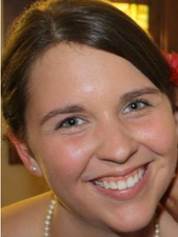 Bailey Kelley is a Columbia College Chicago graduate with a Bachelor of Arts in Cultural Studies. She is currently pursuing a Master of Arts degree in Communication at the University of Illinois at Chicago. Her academic interests include representations of femininity, female sexuality, and reproductive health issues on television; genderfication during childhood; and Peircean semiotics. Her previous work includes a feminist critique of the children’s television show Dora the Explorer and its product line, published in the journal Cultural Landscapes and presented as part of a critical media studies panel at the 2013 Cultural Studies Association Conference.
Bailey Kelley is a Columbia College Chicago graduate with a Bachelor of Arts in Cultural Studies. She is currently pursuing a Master of Arts degree in Communication at the University of Illinois at Chicago. Her academic interests include representations of femininity, female sexuality, and reproductive health issues on television; genderfication during childhood; and Peircean semiotics. Her previous work includes a feminist critique of the children’s television show Dora the Explorer and its product line, published in the journal Cultural Landscapes and presented as part of a critical media studies panel at the 2013 Cultural Studies Association Conference.
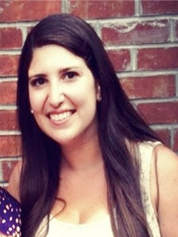 Rosalind (Roz) Koff is currently working at the National Opinion Research Center (NORC) at the University of Chicago. She is a recent graduate of Georgetown University in the Communication, Culture & Technology Master’s Program. She previously worked with the Social Media and Adolescent Health Research Team at Seattle Children’s Hospital. Some of her research includes: college student evaluations of alcohol marketing messages, student perceptions of personal technology use, and most recently, a content analysis of user-generated media depicting substance use on YouTube.
Rosalind (Roz) Koff is currently working at the National Opinion Research Center (NORC) at the University of Chicago. She is a recent graduate of Georgetown University in the Communication, Culture & Technology Master’s Program. She previously worked with the Social Media and Adolescent Health Research Team at Seattle Children’s Hospital. Some of her research includes: college student evaluations of alcohol marketing messages, student perceptions of personal technology use, and most recently, a content analysis of user-generated media depicting substance use on YouTube.
Jennifer Marlow, Michigan State University
Dhawal Mujumdar, University of California, Berkeley
Aditi Paul, Michigan State University
Chang Sup Park, Southern Illinois University, Carbondale
Jonathan Peters: A media lawyer, Jonathan Peters received his Ph.D. in Journalism from the University of Missouri in August 2013. He blogs about free expression for the Harvard Law & Policy Review, and he has written on legal issues for The Atlantic, Slate, The Nation, Wired, PBS, and the Columbia Journalism Review. Peters has taught courses in media law, news reporting, media ethics, feature writing, public affairs reporting, and journalism principles. His scholarship and commentary have been noted by Forbes, Politico, The Wall Street Journal, The Washington Post, The Guardian, and PBS NewsHour, among others. Peters is a volunteer attorney for the Student Press Law Center and the Reporters Committee for Freedom of the Press, both in Washington, D.C., and he is a volunteer attorney for the Online Media Law Network at Harvard University. He is the First Amendment Chair of the Civil Rights Litigation Committee of the American Bar Association, a member of the Media Law Committee of the Ohio State Bar Association, and a member of the board of directors of the ACLU of Ohio. In addition to his Ph.D., Peters has a journalism degree from Ohio University and a law degree from Ohio State University.
Grace Pigozzi, University of Illinois at Chicago
Giulia Ranzini is Research Assistant within the Institute for Media and Communication Management (MCM) of the University of St Gallen, Switzerland. She holds the position since June 2010, focusing her research on digital communication, and on the impacts of technology on individual and collective behaviors. At the current time, Giulia is a third-year PhD Candidate within the same University, following the Business Strategy track. Born in Milan (Italy) in 1985, she received a Bachelor’s Degree in International Economics and Management at Bocconi University in 2007. Within the same institution, she was awarded a Master of Science in Management of Arts, Media, Culture and Entertainment in 2009, with a thesis covering the business models behind social network sites. In the same years, she enriched her education visiting Fudan University (China, 2007) and attending the International Design Business Management project at Aalto University (Finland, 2008). Giulia’s research interests, characterized by a multi-disciplinary approach, stand in the digital identities of individuals, focusing on self-presentation techniques and on their offline consequences. In general, the impact of computer-mediated communication on interpersonal relationships and the technology-driven changes in individuals’ consumption patterns remain important elements for future research.
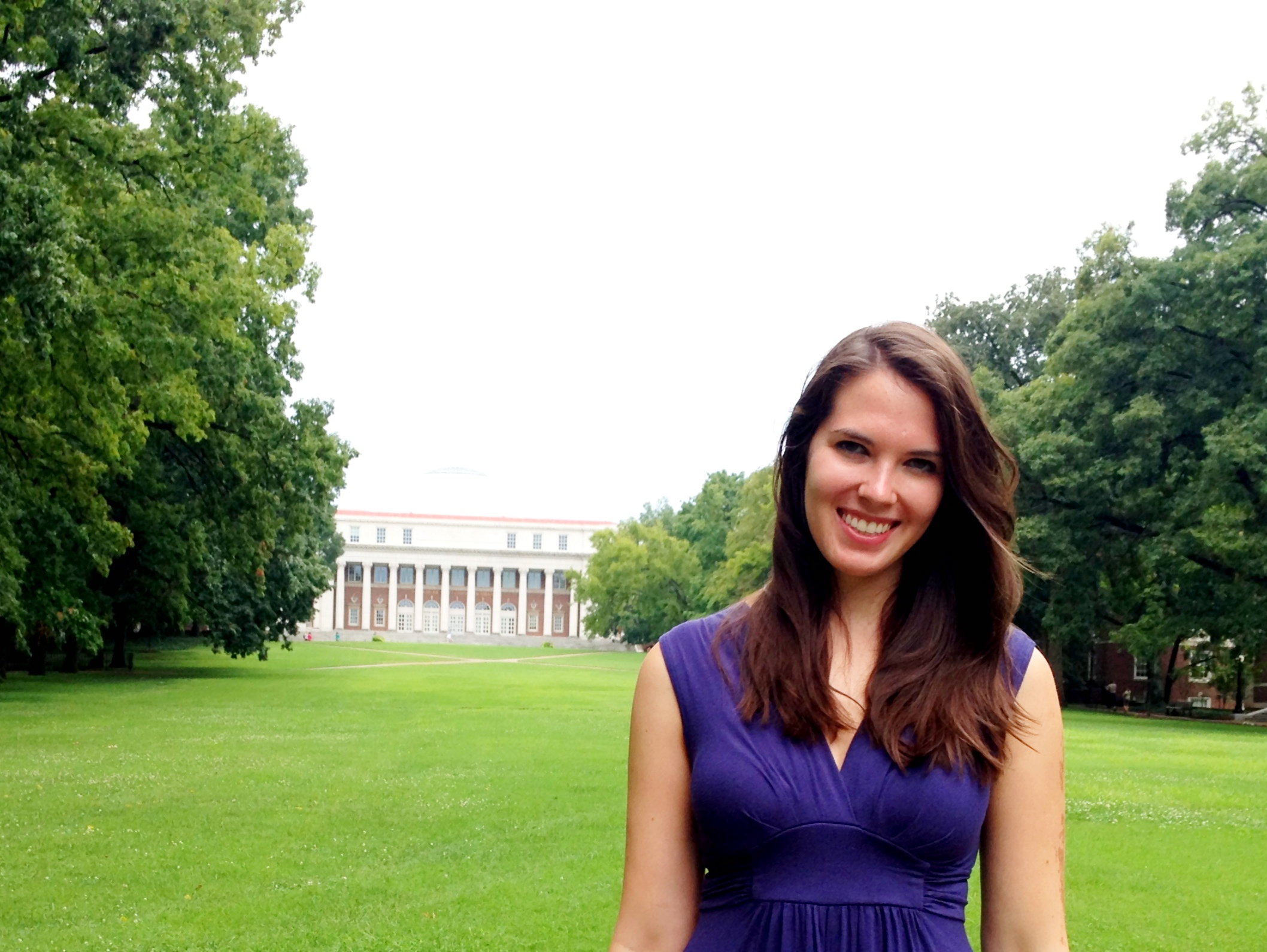 Colleen Russo is a second year PhD student at Vanderbilt University and a National Science Foundation Graduate Student Fellow. She studies with Dr. Georgene Troseth in the department of Psychology and Human Development at Vanderbilt’s renowned Peabody College of Education. Colleen holds a BA in psychology from Denison University where she studied young children’s learning from television and the effects of viewing verbal bullying on television. At Vanderbilt, Colleen continues to investigate both topics, as well as young children’s use of and learning from touchscreen devices.
Colleen Russo is a second year PhD student at Vanderbilt University and a National Science Foundation Graduate Student Fellow. She studies with Dr. Georgene Troseth in the department of Psychology and Human Development at Vanderbilt’s renowned Peabody College of Education. Colleen holds a BA in psychology from Denison University where she studied young children’s learning from television and the effects of viewing verbal bullying on television. At Vanderbilt, Colleen continues to investigate both topics, as well as young children’s use of and learning from touchscreen devices.
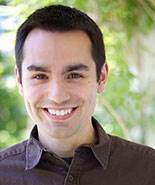 Thomas A. Salek is a PhD student in the Department of Communication at the University of Wisconsin-Milwaukee. His focus is on rhetoric, political communication, as well as media and cultural studies. He has a MA in Cinema Studies from New York University.
Thomas A. Salek is a PhD student in the Department of Communication at the University of Wisconsin-Milwaukee. His focus is on rhetoric, political communication, as well as media and cultural studies. He has a MA in Cinema Studies from New York University.
text
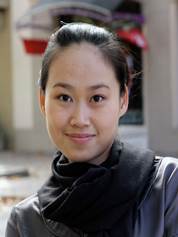 Hong Shen is a doctoral student at the Institute of Communication Research, University of Illinois at Urbana-Champaign. She received a BA and MA in literature from East China Normal University in Shanghai, China as well as a MS in Journalism from University of Illinois at Urbana-Champaign. Before coming to the United States, She wrote for several newspapers and magazines in Shanghai and Beijing. Her research interests lie in the intersection of emerging information and communication technology and society. She is currently working on a project examining China’s Internet policy toward global Internet governance.
Hong Shen is a doctoral student at the Institute of Communication Research, University of Illinois at Urbana-Champaign. She received a BA and MA in literature from East China Normal University in Shanghai, China as well as a MS in Journalism from University of Illinois at Urbana-Champaign. Before coming to the United States, She wrote for several newspapers and magazines in Shanghai and Beijing. Her research interests lie in the intersection of emerging information and communication technology and society. She is currently working on a project examining China’s Internet policy toward global Internet governance.
Nur Uysal, University of Oklahoma
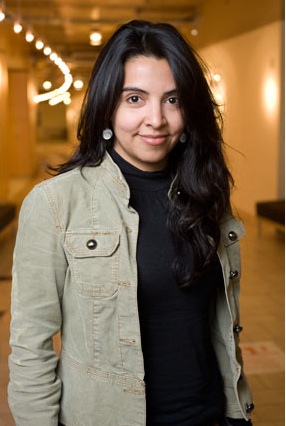
Fatima K. Espinoza Vasquez is a PhD candidate at the School of Information Studies (iSchool) in Syracuse University. She has a Masters in Information Management from the same institution and a bachelor’s in Communication with focus on Advertising from the Universidad Tecnológica Centroamericana, UNITEC in Tegucigalpa, Honduras. She is interested in Social Movements and Transnational Networks and their use of Information and Communications Technology (Social Media, Collaborative Technologies, Radio, Television) in social and political processes. In particular, the case of Honduran Resistance and how they used ICTs to communicate organize and mobilize in the context of the Honduran constitutional crisis of 2009. Her work experience includes Television, Advertising, Web Design, Public Relations and Project Management. She ha worked in the private sector, government and non-governmental organizations.
 Carli Vierke is a second year Master’s student at New York University in the department of Media, Culture and Communication. Carli received her Bachelor’s Degree in Art History from the University of British Columbia in Vancouver, Canada. Her research interests include the role of smartphone technology as an interruption of traditional modes of interpersonal, face-to-face communication, and the smartphones role in the normalization of the modern “24 hour workday.” In addition to an emphasis on interpersonal communications, a consideration of technology’s impact on self-reflection (and in this case, mindfulness), is often a focal point in her work.
Carli Vierke is a second year Master’s student at New York University in the department of Media, Culture and Communication. Carli received her Bachelor’s Degree in Art History from the University of British Columbia in Vancouver, Canada. Her research interests include the role of smartphone technology as an interruption of traditional modes of interpersonal, face-to-face communication, and the smartphones role in the normalization of the modern “24 hour workday.” In addition to an emphasis on interpersonal communications, a consideration of technology’s impact on self-reflection (and in this case, mindfulness), is often a focal point in her work.
Joachim Vlieghe is research fellow for the Department of Educational Studies at the Ghent University, where he is a junior member of the research group Culture & Education. Since January 2011 he is taking part in an interdisciplinary research project entitled: User Empowerment in a Social Media Culture (EMSOC). His fields of interest are literacy, cultural participation, literature and social media. He recently published a study on the migration and transformation of literary culture in social media environments. The article can be freely accessed on the website of CLCWeb: Comparative Literature and Culture <http://docs.lib.purdue.edu/clcweb/vol15/iss3/7/>.
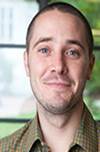 A.Jay Wagner: A third-year Ph.D. student in Indiana University’s School of Journalism, A.Jay’s research focuses on media law, technology, and culture, with special interest in the Icelandic Modern Media Initiative, a progressive slate of communication laws currently being adopted in Iceland. He’s written for a wide range of publications, including the Chicago Sun-Times, SouthtownStar, the Daily Herald, and The Chicago Reporter; and worked for media rights organizations the International Press Institute and the McCormick Foundation.
A.Jay Wagner: A third-year Ph.D. student in Indiana University’s School of Journalism, A.Jay’s research focuses on media law, technology, and culture, with special interest in the Icelandic Modern Media Initiative, a progressive slate of communication laws currently being adopted in Iceland. He’s written for a wide range of publications, including the Chicago Sun-Times, SouthtownStar, the Daily Herald, and The Chicago Reporter; and worked for media rights organizations the International Press Institute and the McCormick Foundation.
 Eric Waters is a third year doctoral student in Organizational Communication and Technology at the University of Texas at Austin. Eric holds a Bachelor of Business Administration from the Haworth College of Business at Western Michigan University and a Master of Business Administration from the University of Texas at Arlington. A ten year veteran of the automotive industry, Eric’s research investigates the interdependent relationships between information and communication technologies (ICTs) and organizational structures. Specifically, how norms, rules or policies influence the use of ICTs in organizations and how advancements in ICTs alter these same norms,rules or policies.
Eric Waters is a third year doctoral student in Organizational Communication and Technology at the University of Texas at Austin. Eric holds a Bachelor of Business Administration from the Haworth College of Business at Western Michigan University and a Master of Business Administration from the University of Texas at Arlington. A ten year veteran of the automotive industry, Eric’s research investigates the interdependent relationships between information and communication technologies (ICTs) and organizational structures. Specifically, how norms, rules or policies influence the use of ICTs in organizations and how advancements in ICTs alter these same norms,rules or policies.
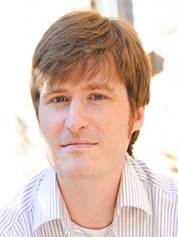 David Weintrop is a graduate student at Northwestern University pursuing a PhD in the Learning Sciences. He has a B.S. in Computer Science from the University of Michigan and spent five years working at a pair of software startups as a developer before starting graduate school. His research focuses on the design and implementation of accessible and engaging programming environments that support learners in successfully encoding their own ideas in computationally meaningful ways. This includes questions of interface design, language features, and ways of leveraging the prior knowledge and experiences learners bring to an activity. He is also interested in the use of technological tools in supporting the exploration of non-computer science subjects, particularly within the STEM disciplines. His work lies at the intersection of computer science, cognitive science, and the learning sciences.
David Weintrop is a graduate student at Northwestern University pursuing a PhD in the Learning Sciences. He has a B.S. in Computer Science from the University of Michigan and spent five years working at a pair of software startups as a developer before starting graduate school. His research focuses on the design and implementation of accessible and engaging programming environments that support learners in successfully encoding their own ideas in computationally meaningful ways. This includes questions of interface design, language features, and ways of leveraging the prior knowledge and experiences learners bring to an activity. He is also interested in the use of technological tools in supporting the exploration of non-computer science subjects, particularly within the STEM disciplines. His work lies at the intersection of computer science, cognitive science, and the learning sciences.
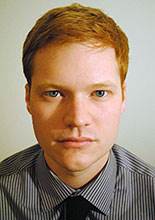 Jansen B. Werner is a PhD student in the Department of Communication at the University of Wisconsin-Milwaukee. His focus is on rhetoric, civil rights controversies, and public sphere studies. He has an MA in Communication Studies from Minnesota State University-Mankato.
Jansen B. Werner is a PhD student in the Department of Communication at the University of Wisconsin-Milwaukee. His focus is on rhetoric, civil rights controversies, and public sphere studies. He has an MA in Communication Studies from Minnesota State University-Mankato.




